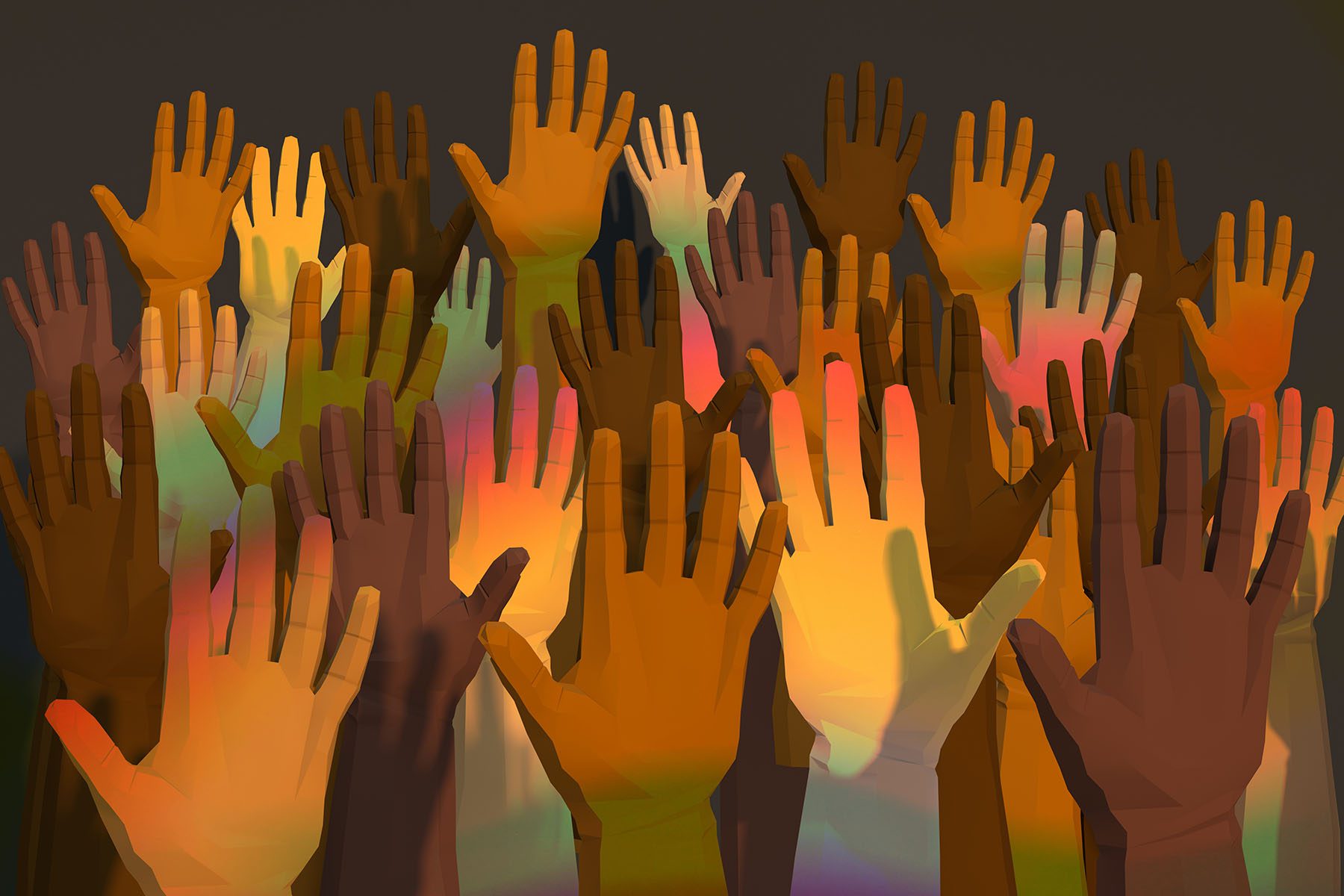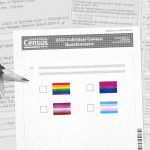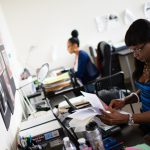We’re answering the “how” and “why” of LGBTQ+ news. Subscribe to our daily newsletter.
A new study paints a bleak financial picture for LGBTQ+ adults in the United States: Many respondents don’t have a checking or savings account, are unable to pay their bills in full, and are worried about affording basic necessities and health care.
The research, organized by the Center for LGBTQ Economic Advancement & Research (CLEAR) and the Movement Advancement Project, found that many of the surveyed LGBTQ+ adults are worried about legislation negatively affecting their financial rights. They also face unique stressors like paying for gender-affirming care or handling out-of-pocket costs for family planning.
Only half of 2,505 respondents who took the online survey in December said that they could pay all of their monthly bills in full at the time. That statistic shocked Spencer Watson, executive director at CLEAR. It underlines why many LGBTQ+ people are only able to focus on building the most basic elements of financial security, instead of looking further into the future by planning for retirement, starting a business or buying a home, they said.
“Folks are really focusing on the Maslow’s hierarchy of needs, you know, the lowest rung of their needs and not really, at this point, striving for those higher-order needs,” they said. The top five financial priorities for LGBTQ+ respondents to the survey were paying their bills on time, reducing or paying off their personal debt, improving their credit score, saving for gender-affirming care, and contributing to an emergency fund. Sixty percent of respondents worry about affording basic necessities, and 56 percent are concerned about affording health care.
The survey, conducted by Morning Consult with a margin of error of 2 percentage points, is non-representative — meaning that it reflects the experiences of respondents rather than the population as a whole. Differences between groups were also not tested for statistical significance, meaning that comparisons between individual demographics may not be accurate.
However, the survey’s findings align with years of research that LGBTQ+ people persistently experience poverty at high rates, and investigates aspects of queer economic insecurity that have not been previously researched, said Bianca D.M. Wilson, senior scholar of public policy at the Williams Institute at the UCLA School of Law.
-
More LGBTQ+ coverage
- Exclusive: Trans students and their parents ask Education Department leaders to help them fight anti-LGBTQ+ bills
- ‘It’s really crushing’: Trans students in higher education face misgendering, isolation and debt
- One of the leading coalitions that pushed for the Equality Act has quietly disbanded
The survey provides a deeper look at what economic instability looks like for LGBTQ+ people, beyond disproportionately low incomes, she said. It particularly sheds light on banking resources, Wilson said.
The report provides “more information around issues of savings, whether or not people have reliable systems for being able to pay bills without maintaining cash such as checking accounts, concerns over debts,” she said.
Over half of LGBTQ+ respondents said that they had less than $5,000 in savings, while 20 percent said that they had no savings. Twenty percent of LGBTQ+ people who took the survey said that they had $50,000 or more in debt, with student loans and credit cards making up the largest sources of personal debt overall.
Twenty-three percent of LGBTQ+ respondents to the survey said that they do not have a checking or a savings account. That high number of “unbanked” people is linked to deeper disenfranchisement for LGBTQ+ people who work in cash-based economies and have been excluded from basic financial services, Watson said.
Such disenfranchisement disproportionately affects transgender people, said Tori Cooper, director of community engagement for the Transgender Justice Initiative at the Human Rights Campaign. Being “unbanked” may also signify that the person is between jobs or earns very low wages, she said.
Transgender and gender-nonconforming people are among the lowest-paid LGBTQ+ people working full-time in the country and are often kept in poverty by a combination of factors including discrimination, health care costs and a lack of basic financial resources.
“We have a lot of trans folks and nonbinary folks who are working well beneath their abilities,” Cooper said, referring to trans people who are underemployed and underpaid. Many LGBTQ+ people — especially trans people — are able to focus only on surviving and not thriving, she said. That makes economic empowerment a crucial part of trans liberation and a priority for the Transgender Justice Initiative this year, Cooper said.
“One of the ways that we fight back is making sure that we’re empowering people with the tools they need … to be able to work in gainful positions and not just always in the lowest positions at any company that they’re working for, which unfortunately too many of us do,” she said.
The Transgender Justice Initiative organizes fellowships for BIPOC trans femmes, as well as trans and nonbinary BIPOC activists, that are part of the organization’s work to boost economic empowerment for transgender people.
Discrimination by banking institutions creates additional stress for LGBTQ+ people, the survey found. For transgender respondents and LGBTQ+ people of color, discrimination at work is an especially high concern.
One in 10 respondents to the survey said that they had faced discrimination while using banking or financial services, while nearly 1 in 4 LGBTQ+ respondents said that they had experienced financial challenges because of their sexual orientation or gender identity.
Respondents described being harassed by employees and by other customers, denied joint accounts or loans with their same-sex partners, and denied services due to their name or gender being updated on identity documents.
Amid these barriers to financial security, LGBTQ+ people are more reliant on predatory financial products like payday loans and pawn shop loans, Watson said — saddling them with more interest and fees.
Federal student loan forgiveness — which is currently being considered by the Supreme Court — would help ease the significant financial burden for LGBTQ+ people, Watson said, as well as the intervention of banking and credit regulators. The Consumer Financial Protection Bureau, Federal Trade Commission, Office of the Comptroller of the Currency, and Federal Reserve should be collecting data about LGBTQ+ consumers and be on the lookout for discrimination in financial services and credit and insurance, he said.
Correction: An earlier version of this article used incorrect pronouns for Spencer Watson.






